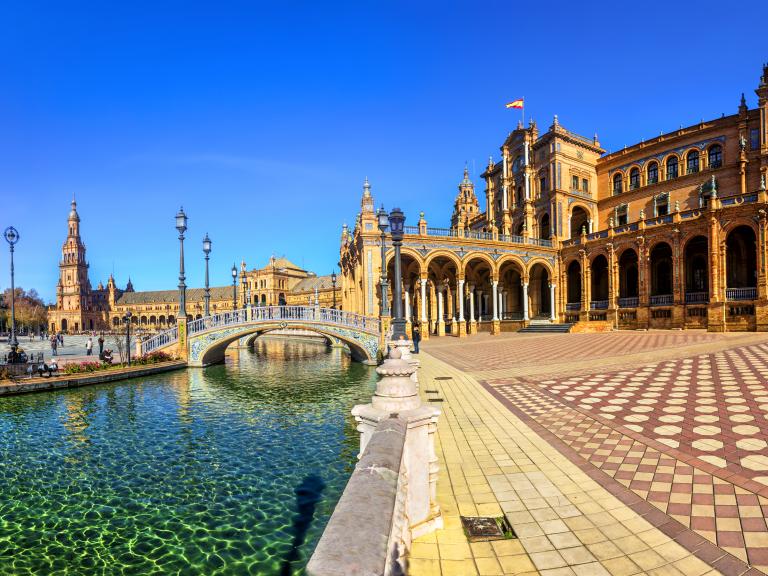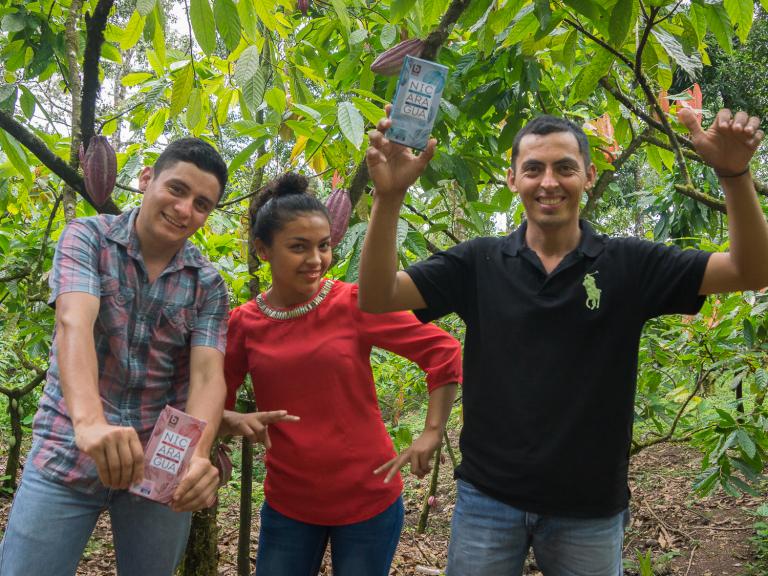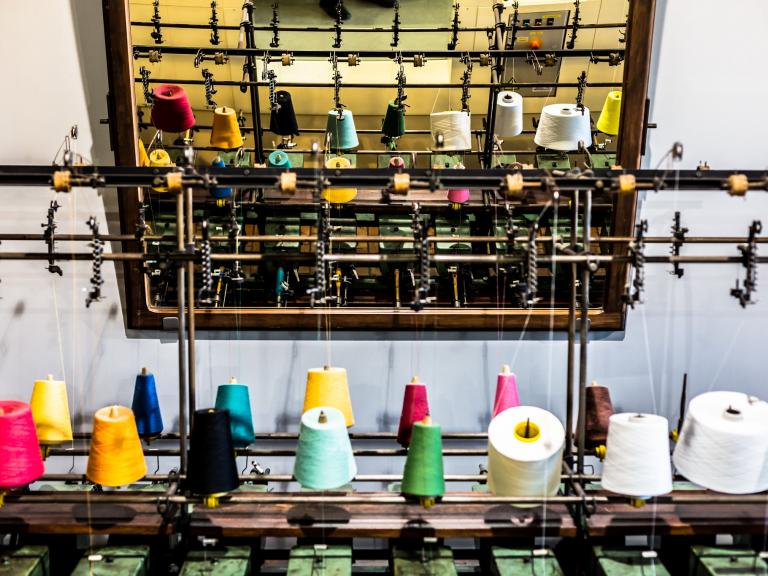-
Last updated on

In Morocco, 120 carefully selected candidates received a seven-month ICT training course to become a ‘Java developer'. © Enabel - Noureddine El Goumari
‘We are all migrants’, both nationally and internationally. People have always moved to live, work or study. Sometimes these moves are a free choice, in other cases, circumstances such as natural disasters, conflicts or lack of resources force them to move. For some, everything will go quickly and safely, while for others the road will be long and dangerous. Host communities will be influenced by the newcomers in any case. The smoothness of their integration will in turn depend on factors such as education, employment, culture, language, adaptability, experience in welcoming migrants and experiences of migrants.

In Uganda, both refugees and young Ugandans received practical training. © Enabel - Sam Deckers
Migration as a lever for development
The Belgian development agency (Enabel) is committed to strengthening the positive aspects of migration, for individuals, communities and countries alike. Migration must become a choice. It must be able to take place in a safe, regular and orderly manner and contribute to sustainable development and poverty reduction.
Enabel also aims to ensure that everyone is given sufficient opportunity for autonomy and inclusion, both the migrants themselves and the residents of the communities where the migrants end up. This happened in Uganda, for example, where refugees from South Sudan, Burundi and Congo were given opportunities for integrating ‘socio-professionally’. Enabel gave young refugees access to irrigated farmland and also provided coaching on setting up their own businesses in the agri-food sector. For young Ugandans, Enabel provided vocational training and employment opportunities.
Below are two examples of how Enabel managed to turn migration into a catalyst for development, both in Africa and here.
Java developers for Morocco and Belgium
In Morocco, 120 carefully selected candidates received a seven-month ICT training course to become a ‘Java developer'. This is a much sought-after profile in Morocco, but the VDAB – the Flemish employment service – also recognises it as a bottleneck profession. Two thirds of the candidates were assisted in their search for work in Morocco. The remaining third were guided into work in Flanders. This is why non-technical aspects, such as the knowledge of English and an introduction to life in Belgium, were also discussed during the training course.
The pilot project thus ensures a ‘joint migration’ to Belgium: indispensable bottleneck professions are filled up. At the same time, Morocco also benefits. After all, the Moroccan employment service was strengthened, while a group of unemployed people received a thorough ICT training course with the prospect of work in their own country.
Ghent University and the Université catholique de Louvain joined the project in order to better understand the mechanisms of labour migration. The EU, which financed the project, has already launched a similar, broader project in North Africa. Enabel will work mainly in Tunisia and Morocco.
Moroccan diaspora in Belgium invests in country of origin
Migrant communities around the world – the so-called diaspora – send large amounts of money or ‘remittances’ to their countries of origin. They also share their expertise and forge bonds. These remittances are estimated to be three times higher than all development cooperation and foreign direct investment combined. In 2018, 440 billion euros flowed through remittances to less wealthy countries. As a result, the recipient families will have greater access to healthcare, education, decent housing and suchlike. This is another positive aspect of migration.
But many people from the diaspora want to do more than send money; they would rather invest in their country of origin. The Moroccan diaspora in Belgium is also brimming with ideas. However, these good ideas often run aground due to a lack of knowledge: about the regulations in Morocco, about entrepreneurship in general, about who could be suitable partners, etc.
This is why Enabel is supporting a select group of potential investors with personal coaching and thematic training courses. Belgo-Moroccan entrepreneurs will also be able to call upon a permanent hotline for advice. The project is in line with a Moroccan policy priority that seeks to strengthen ties with its diaspora. The country also hopes to speed up its economic recovery from the COVID-19 pandemic this way.
In short, migration is not going anywhere, and nor should it. On the contrary, in a more equal world and when given some support, migration even contributes to greater equality.
Both the above-mentioned project in Uganda and the one with Java developers were carried out by Enabel with EU funding. The EU is a major partner of the Belgian Development Co-operation. The EU funding also allows Enabel to gain additional experience that will enable it to carry out the actions of the Belgian Development Cooperation more efficiently. In addition, the EU funding increases the impact of Belgian development policy.
SDG 10 – Reduce inequality between and within countries
Inequality is a major factor in instability. SDG 10 therefore strongly emphasises a more equal, ‘inclusive’ society: no-one should be left out, everyone in the world should have equal opportunities.
SDG 10.7 states that migration must be able to occur in an orderly, safe, regular and responsible manner. This is the only way migration can make a significant contribution to development and greater equality.
With the Sustainable Development Goals (SDGs), the UN and Belgium are working towards a better world by 2030.
More on Economy

Belgium & Spain: a century of cordial relations
In 1921, the diplomatic missions of Spain and Belgium in Brussels and Madrid, respectively, were elevated to embassies. For all ...

Transparent supply chains? It pays off!
Rikolto (formerly Vredeseilanden) draws upon lessons from 15 years of working on sustainable, transparent supply chains with Col...

Fair trade, more important than you think
During the Fair Trade Week (7 to 17 October), fair trade will once again be in the spotlight. After all, fair trade is a crucial...
